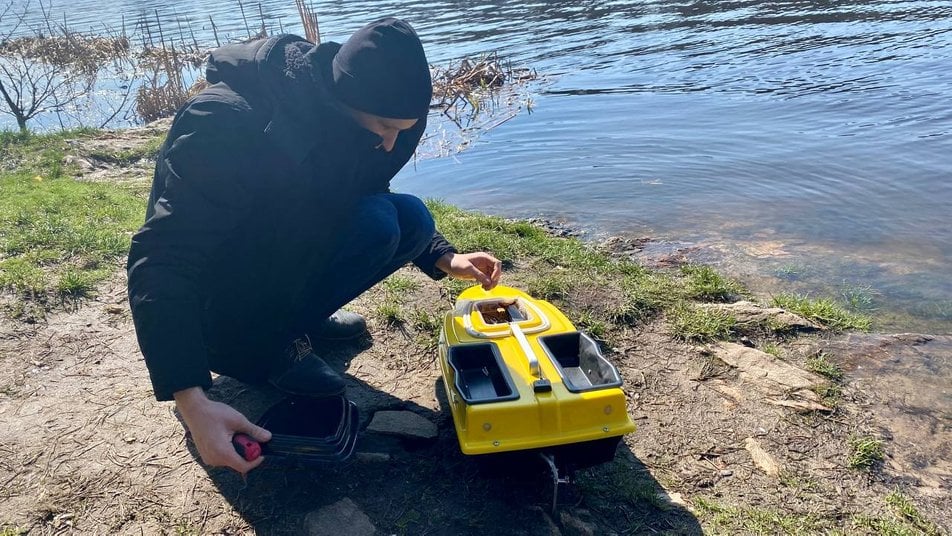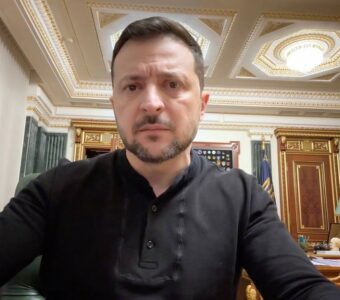Ukrainian student develops mobile platform to research water quality

Фото: Тетяна Дукач для Суспільне Житомир
Mykyta Nieviedrov, a third-year student at Zhytomyr Polytechnic University, developed a mobile platform project to conduct environmental water research, Suspilne reports.
What is the problem?
According to disappointing forecasts, in another 20-30 years, Ukraine will have to import drinking water. A study prepared by Ukraine's leading scientists under the auspices of NGO Clean Dnipro shows that out of 31 million hectares of land, more than half of the territory suffers from a shortage of clean water, and 3 million hectares are in the zone of critical moisture deficit. The reasons are many — pollution, climate change, no water conservation, and efficient water use policies. NGO Clean Dnipro director Dmytro Nadieiev reported that without urgent measures, the arid area may increase by another 30% by 2050. This year, the predictions are confirmed, and the urgency intensifies because of Russia's war.
The number of polluted water bodies has increased significantly due to active military operations. The Organisation for Economic Co-operation and Development (OECD) report says, "With a steady barrage of strikes on refineries, chemical plants, energy facilities, industrial depots, or pipelines, the country's air, water, and soil have been polluted by toxic substances." While environmental damage is evident, its extent is difficult to measure, the OECD experts say. Pollution caused by military activities goes unreported, as monitoring systems have been disrupted or destroyed, and such damages continue accumulating.
What is the solution?
Mykyta Nieviedrov, a third-year student at Zhytomyr Polytechnic University, developed a mobile platform project to research water quality. Mykyta worked on the idea for three months, says project supervisor Maria Hrynevych.

Photo: Tetiana Dukach for Suspilne Zhytomyr
"The platform can quickly and qualitatively measure the acidity of water, and not only that. We can quickly learn about water quality at a specific point in the reservoir. There are no analogs of such a platform," Hrynevych says.
How does it work?
A student-invented mobile platform can measure temperature, acidity, and depth at a certain point in a water body. It records all indicators on an SD card, which can then be processed and visualized on a computer using special programs.
"Mykyta was passionate about the idea of creating such a platform. We were happy to help him. The idea was completely his, but he consulted us if he had any questions and something was unclear. If he wanted advice, he turned to us, and we helped him. That's how wonderful the result we have," the teacher adds.

Photo: Tetiana Dukach for Suspilne Zhytomyr
Mykyta presented this project at the Black Sea Science international competition of student scientific works, where he received a second-degree certificate. Students from 12 countries took part in the competition.
"The uniqueness of this device is that it allows you to easily conduct ecological studies of water bodies and assess water quality. It requires few resources and little time to conduct such studies," the author of the idea explains.
"Now we have the war that will lead to complex consequences," says Maria Hrynevych. "The consequences will also be ecological. This platform helps to detect pollution in the water body. It can be various types of pollution. With the help of such a platform, we can detect them and take action to clean reservoirs."
In the future, Mykyta plans to equip the platform with a particular module to measure the level of radiation pollution.
"I believe this will be an important stage in modernizing this device. In the post-war period, it will be relevant. It will be possible to conduct water quality analysis very easily and simply with the help of such modernizations," adds Mykyta.




















































